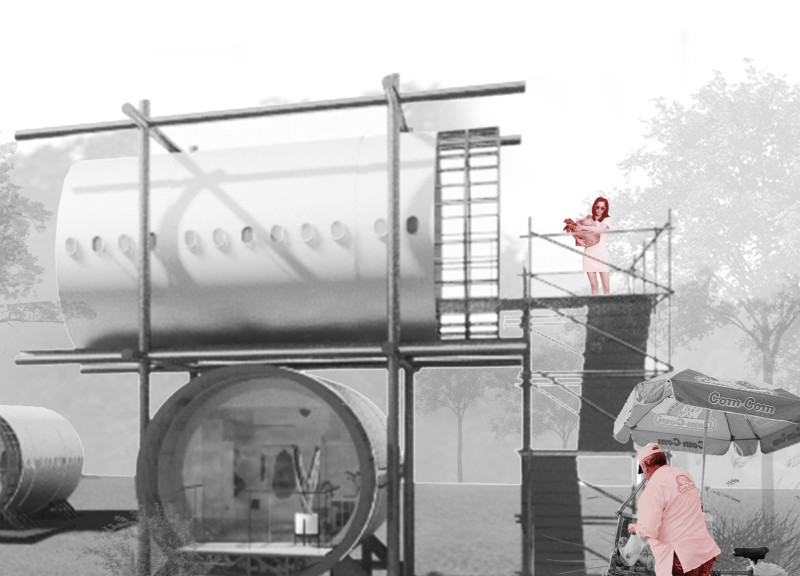5 key facts about this project
The MICROHOME 2021, known as the Micro Nano Rotating Home, provides an efficient living solution within a compact design. Located in Tucson, Arizona, the home addresses modern housing needs by integrating multiple functions into one dynamic space. The concept focuses on flexibility and utility, offering a response to the challenges of urban living.
Concept and Functionality
The design features a rotating mechanism that allows the living space to adapt to various activities throughout the day. This innovative feature enables residents to change their environment with ease, transforming a workspace into a dining area or a bedroom as required. Such adaptability maximizes the limited space and transforms how individuals engage with their homes, promoting versatility in everyday life.
Material Engagement
The project makes use of discarded airplane center fuselage chassis sourced from AMARG, a place where retired aircraft are stored. This choice reflects a commitment to sustainability and resourcefulness. The durable metal skin, thermal insulation, and steel framework taken from the airplane have been effectively integrated into the design. This approach not only reinforces the structure but also emphasizes energy efficiency, creating a practical yet modern appearance.
Spatial Organization
Inside the MICROHOME, careful organization allows for various living functions to coexist in harmony. The layout includes a terrace, workspace, bed, dining table and TV area, kitchen with a washing machine, and bathroom. Each area is designated for specific activities, making it possible for residents to live comfortably in a compact setting. This arrangement promotes openness and accessibility, addressing the needs of urban residents who value both functionality and simplicity.
The rotating mechanism encourages active engagement with the space, allowing users to create an environment suited to their daily needs. This thoughtful design illustrates how adaptable living solutions can enhance comfort and practicality, making the MICROHOME a relevant response to contemporary urban challenges.




















































